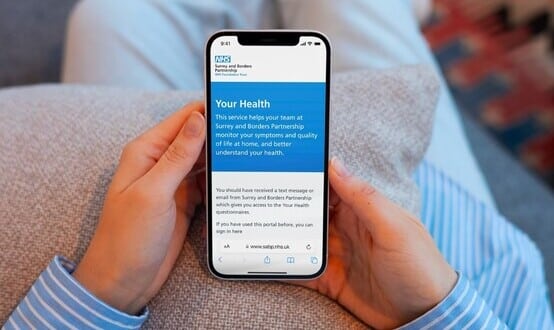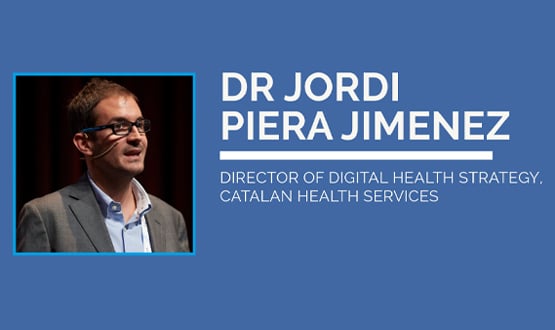From Russia with love
- 18 March 2015

There are two things it is certain that we need to do in order to address the challenges that an ageing population creates for health and care.
The first is closer integration of health and care and to move care nearer to the patient. The second is to leverage digital technology to support this change, using both big data and small data to deliver more appropriate care more effectively.
I’m pretty certain that the health informatics community know how to create the open digital ecosystem we need to support the emerging new models of care and that there are examples of successful approaches that we can draw from. However, I have a number of concerns, specifically that:
- Policy makers don’t have sufficient knowledge of the available options or the technical understanding of informatics and digital health and care to make informed decisions.
- Informaticians and technologist from outside of the domain don’t have sufficient understanding of health and care to provide good quality advice to policy makers and worse believe that they have.
- Organisations on the ground also lack sufficient knowledge and technical understanding which means they are not able to critically appraise proposed solutions from vendors and may be tempted to implement solutions that appear to address immediate priorities but which are not scalable or sustainable and which create vendor lock-in.
- Many in the NHS, vendor and digital health communities have existing positions and conflicts of interest which disincline them from taking the radical steps necessary to work towards the creation of the open digital ecosystem we need.
In the vanguard of a five year plan
The imperatives for dealing with the ageing population are certainly recognised by policy makers. NHS England’s ‘Five Year Forward View’ was published last year to try and address the growing ‘Nicholson Challenge’ to bridge the gap between flat funding and rising demand.
In essence, it argued that to close the gap, which could reach £30 billion by 2020-21, we need to address the demand issue through much better public health and digital engagement. And we need to find new models for the delivery of health and social care.
Rightly, in my view, NHS England is now encouraging and facilitating various approaches to creating some form of accountable care organisation, with total responsibility for the health care of a given population.
ACOs could emerge from various directions, including general practice, acute trusts, local authorities and the private and third sectors.
Just last week, NHS England announced 29 ‘vanguard’ sites to implement three approaches: multispecialty community providers (or MCPs), primary and acute care systems (or PACS), and enhanced health in care homes.
We also have the 14 – now 25 – 'integrated care pioneers' promoted earlier in this Parliament by care minister Norman Lamb, and the ambitious plans to hand over health and social care funding to a new, council led organisation in Manchester that is likely to be replicated elsewhere.
IT is needed – but what kind of IT?
All of these initiatives have massive implications for new and existing digital technologies, both to mobilise data and to enable the digital delivery of services to citizens.
It will be necessary to create interoperability between existing systems across health and care and changes to make it easier to implement and integrate new digital services and apps.
This integration requires interoperability both of data and workflows to allow the sharing of both information and tasks across multiple actors in care communities.
It needs to liberate information in open and computable formats to facilitate big data analytics to help us understand needs, what we are achieving and how we might do it better (all the time bearing in mind the privacy, information sharing, and governance issues).
There are many companies developing new and existing products to meet these challenges and while many of these have a more open approach than has traditionally been the case most are still based on solutions tied to particular vendor or technology.
My view is that such approaches are unlikely to have long term sustainability; and even if they do they will create a degree of vendor lock in that is against the public interest.
As far as possible we need to create solutions based on open standards independent, of particular technologies which allow multiple vendors to play allow the easy replacement of any single proprietary component to avoid vendor lock-in.
Look east, to Moscow
One approach that I think has great promise has been adopted by Moscow City Council. It is responsible for pretty much all of the health and social services for 11 million citizens; and its services have the kind of siloed legacy systems with which all too many of us will be familiar.
It wanted to separate data from applications and store it in a vendor and technology neutral format, and chose OpenEHR to do this. OpenEHR is a virtual community working on interoperability and compatibility in e-health and, as its name suggests, its main focus is electronic patient records and systems.
It works by publishing specifications for clinical models – or archetypes – that make use of standard health terminologies and open components. Moscow piloted its approach by using the Marand Think!EHR OpenEHR implementation and Integrating the Healthcare Enterprise XDS components for electronic document sharing from Forecare.
This is the same basic technology that Marand had already implemented in Slovenia – in that case using IHE components from Tiani Spirit. And it will be familiar to some in the UK, because it was used by the HANDI-HOPD open platform demonstrator that has recently morphed into NHS England’s Code4Health platform.
The Moscow pilot was very successful, and is now being rolled out across the city. The key point is that while it has used some proprietary components to implement OpenEHR and XDS document sharing, it has the comfort of knowing that the data itself is stored in an open format.
Therefore, these components can be easily replaced if alternatives emerge that appear to offer better performance or data. And therefore it seems to me that this approach offers the best bet for the integration of systems and information that will need to take place in the complex environments that we are looking at in the UK.
Issues to address
However, this is where my concerns come back to haunt me. If we are to achieve progress, policy makers need to recognise their lack of knowledge and be aware that those advising them both public sector IT specialists and vendors may a have vested interests which mean their advice must be critically appraised.
This can only be achieved by a more open, collaborative and transparent process. All of us have our own agenda seeking some mixture of money, power, sex and glory with concerns about how we pay the bills.
No individual or organisation can offer informed and impartial advice and it’s only if we are all honest about our motivations and concerns and debate the options openly that we can make progress. I’m in it mainly for the glory, have paid off the mortgage but could still use a bit more cash – and a gentlemen never tells…


Ewan Davis
Ewan Davis is a digital health strategist at Woodcote Consulting, and a consultant to NHS England on open source. He is a founder of HANDI, a not for profit venture that aims to promote openness and collaboration that developed the HANDI-HOPD online open platform demonstrator.
This column is a syndicated version of two recent posts on the Woodcote Consulting blog




